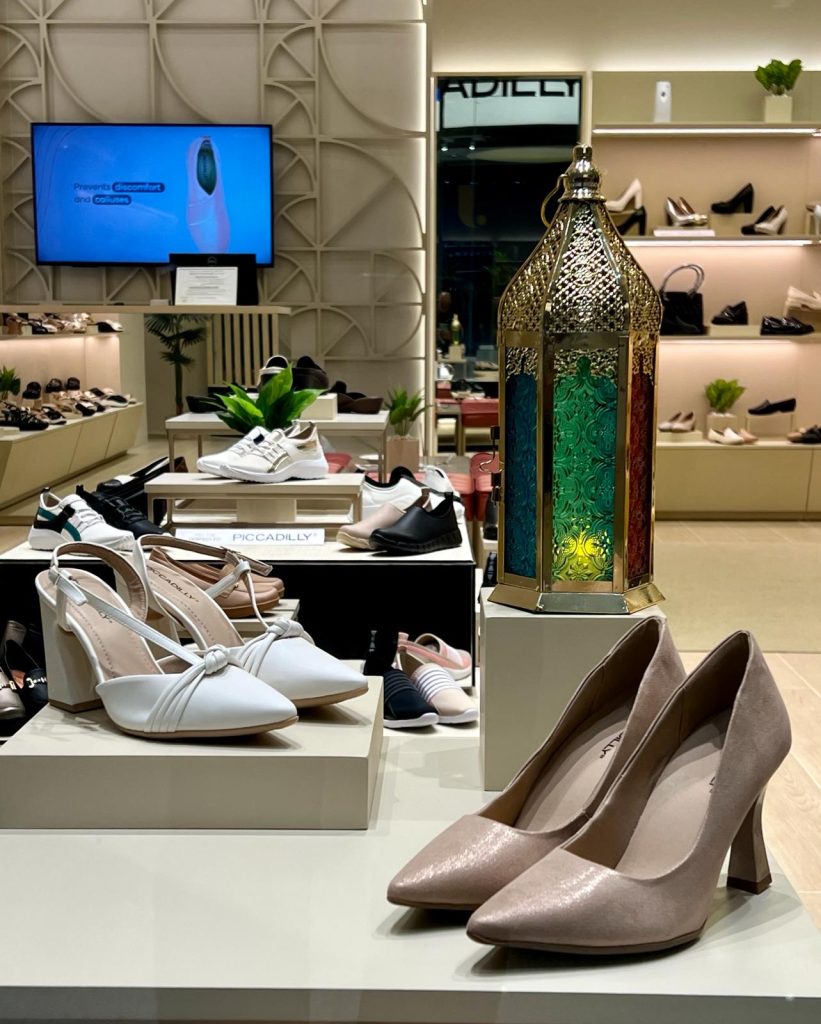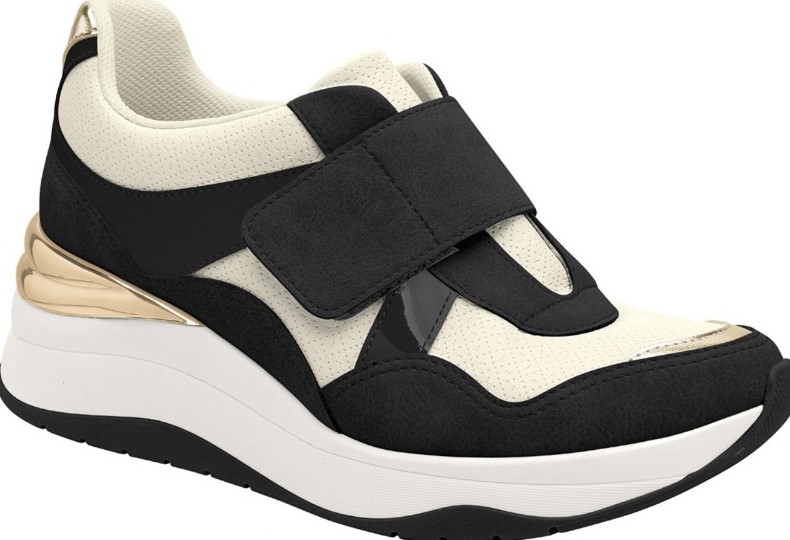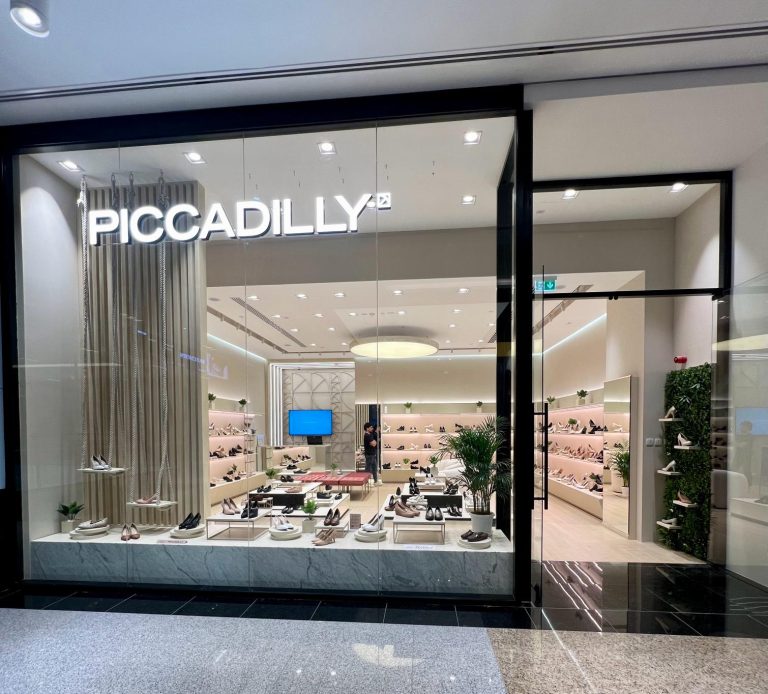São Paulo – The first branch store of Brazilian women’s footwear manufacturer Piccadilly is in operation in the Reem Mall in Abu Dhabi, the United Arab Emirates’ capital city. The official inauguration is slanted for the next few days, as the company waited the end of the Muslims’ holy month Ramadan for this event. Ramadan ended last Tuesday (9). Later this year, a second location will open in Abu Dhabi.

Piccadilly Expansion Manager Bruna Kremer told ANBA the two locations are part of the company’s international expansion plan for this year. Inaugurations will also take place in 2024 in Bogota, Colombia; Monterrey, Mexico; Santo Domingo, Ecuador; Manila and General Santos, Philippines; and a Peruvian city still to be defined.
Expansion into Abu Dhabi
The Abu Dhabi point of sale belongs to the same businessman who has worked with the company for 15 years and owns 13 branch locations in Kuwait. “Driven by the brand’s success in Kuwait, he was looking for new opportunities to expand his business in the Middle East. That’s when the opportunity came to open stores in Abu Dhabi,” says Kremer. Another form of operation of the company is through “licensed” stores, which replicates the franchise business model that is more common in Brazil.
“We have a very strong focus in using metallic materials to meet a demand that is very particular of this market.”
Bruna Kremer, Expansion Manager at Piccadilly
In the Middle East and North Africa, the Piccadilly shoes also reach Saudi Arabia, Bahrain, Chipre, Israel, Jordan, Lebanon, Oman, Egypt, Algeria, Libya, and Tunisia. The products are manufactured in Brazil and exported, and the collection sold in Abu Dhabi is the same that caters to the domestic market. Clients in the region favor scarpin heels, which are both “elegant” and “comfortable”, Kremer says, as well as the company’s sneakers and shoes with “metallic” details.

“We can work now with the same collection that’s sold in Brazil, but we have a very strong focus in using metallic materials to meet a demand that is very particular of this market,” she says. “As for the Kuwaiti consumer, we find it to be a more modest market compared to the UAE,” she adds.
In 2023, Piccadilly grossed BRL 597.6 million [USD 117.7 million], 35% of which came from its international operations, with a foothold on over one hundred countries. Arab countries are the destination of 15% of the shoes exported by Piccadilly. Kremer says the Brazilian footwear is recognized and well known for its high quality and “unique” design. But there is still a long way to go. Besides being known by their strengths, Kremer says, Brazilian brands have yet to be “desired” by foreign customers.
She points out that Piccadilly was a “visionary” in the 1990s when it gave up its private labeling model in which a company sells products under its own brand name while outsourcing production to a third-party manufacturer. Since then, it has focused on a “appeal” to comfort and quality, features that are now the main trait of its shoes. “As years go by, though, fashion also started to be a key element, and we believe that our combination of fashion and comfort and quality has led us to meet the needs of women in the markets we operate in and convey the purpose of our brand that is to encourage women to walk their own path,” says Kremer.
Find out more.
Translated by Guilherme Miranda




